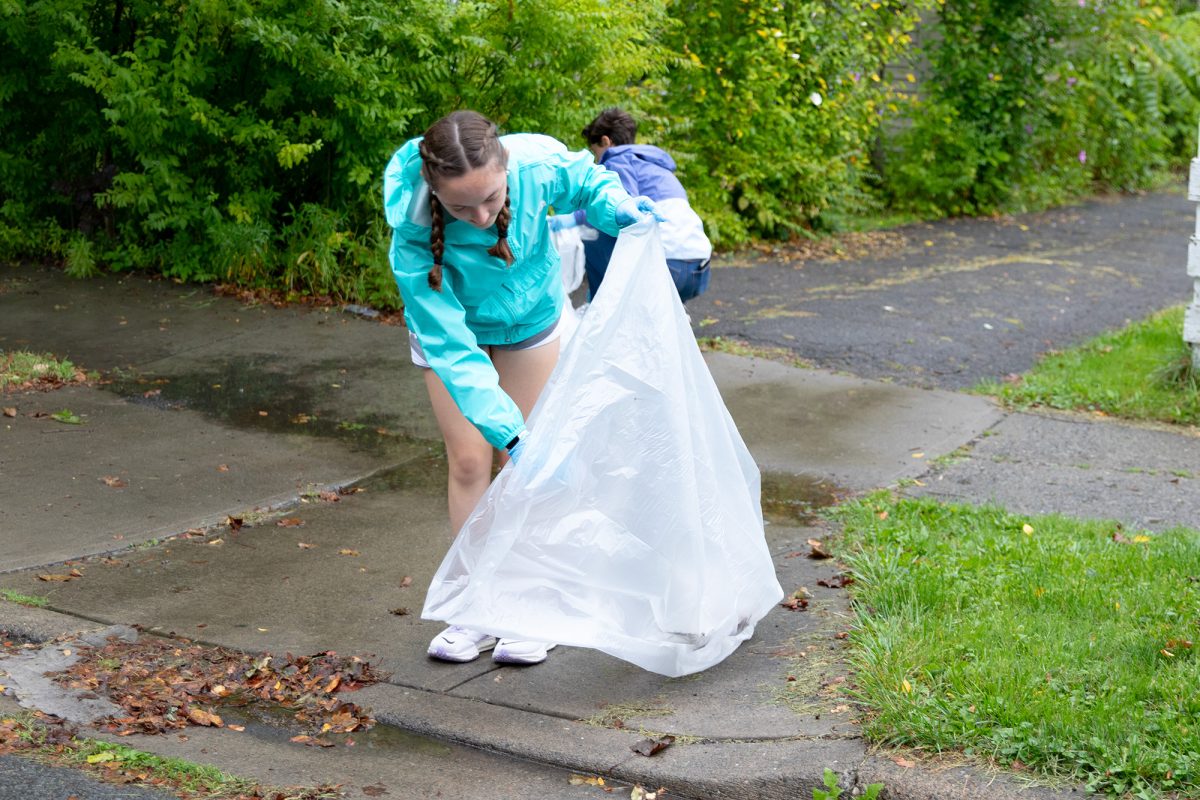
Only six Ithaca College students have been diagnosed with influenza-like illness in the first three weeks of October, compared to the influx of 69 students in the same period in October 2009, according to the Hammond Health Center.
This sharp decline comes after a year of ample media attention focused on the harmful symptoms and slow recovery from H1N1, more commonly known as swine flu.
The college does not confirm every case of suspected influenza with laboratory testing, Laura Keefe, manager of health center operations, said.
“Instead, we track students who we diagnose with any influenza-like illness,” Keefe said.
The Health Center has vaccinated 417 fewer students so far in the 2010-11 academic year than in the 2009-10 year. The numbers of diagnoses this year are still considerably less, Keefe said.
Mary Kranz, nurse manager at the Health Center, said students were much more aware of the influenza outbreak last year because of the media attention surrounding the H1N1 virus.
“We are not seeing the same response this year,” Kranz said. “People aren’t as anxious.”
Last year, the college’s myHome website added a flu button to the portal, allowing students to alert the Health Center of their illness. Intercom also included announcements about staying healthy and avoiding contracting H1N1, specifically, and treating the virus.
This year, however, the flu button has been removed, and announcements are less frequent.
Cornell University also saw a substantial decrease in the number of influenza-like illnesses. From Aug. 16 to Oct. 20, 2009, 1,025 students were diagnosed with influenza-like illness compared to 32 students this year for the same time period.
Gannett Health Services at Cornell has vaccinated 8,427 fewer students to date in 2010 than in the 2009 flu season, Heather Stone, public health communication specialist for Gannett Health Services, said.
Stone said Gannett Health Services received their supply of the seasonal flu vaccine earlier this year, allowing them to start flu clinics in September.
“Unlike this time last year when supply was unpredictable and limited, this year’s early plentiful supply has allowed us to offer a free seasonal flu vaccine to any student, staff or faculty member who wants one,” Stone said.
Kranz said the college’s Health Center is not expecting more students to come in for the vaccine until they notice others with symptoms.
“Until the flu hits and students see others with it, people don’t think about it,” Kranz said.
The Health Center held five seasonal flu vaccination clinics in September and October with additional clinics to be determined. Kranz said the Health Center is also considering holding flu clinics at each residence hall on campus.
“We’re trying to determine the best way to get to the students instead of the students having to come to us,” Kranz said.
Because of the high demand last year, the Health Center was forced to postpone two of its scheduled clinics to order additional supplies.
In the 2009 flu season, the Health Center had limited access to both the seasonal flu vaccine and the H1N1 vaccine because of demand, Kranz said.
Sophomore Julianne Feller was one of the students who did not receive the seasonal flu vaccine or the H1N1 vaccine last year. She said the hype surrounding the H1N1 virus was not a valid concern for her.
“It was no different than the avian flu or anything like that,” she said. “They just magnified rare, extreme cases of H1N1.”
This year, the Health Center was able to purchase the flu vaccines, which include two variations of the virus and protection against H1N1, Kranz said.
“This year we pre-booked for three times more vaccination supply,” Kranz said.
Kranz said having one shot cover multiple flu cases should be more convenient for students.
“Last year you had to get two different shots or a spray and a shot because there was the H1N1 and the seasonal flu,” Kranz said.
Kranz said all students are encouraged to receive the seasonal flu vaccine regardless of the decline in publicity surrounding the virus.
“The flu shot is a quick thing to do to save a lot of trouble,” Kranz said.







